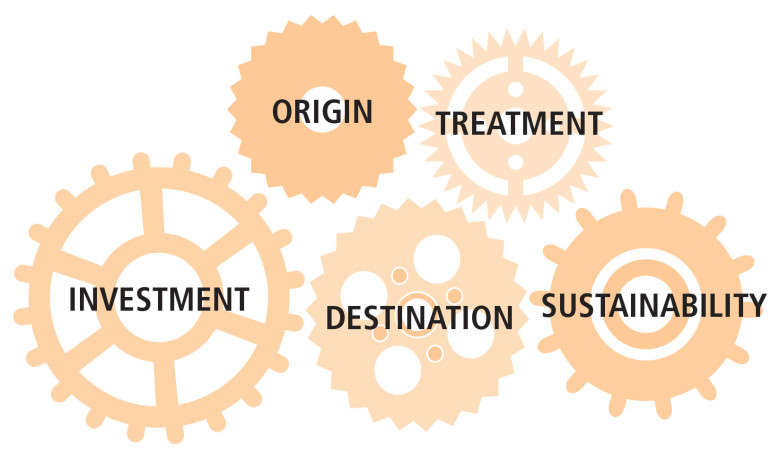Waste to Cash: from concept to patent. From challenge to reality
For a few weeks now, we’ve been talking about waste and how what society does with it makes it a waste or not. If it was valuable before becoming waste, isn’t it logical for it to be valuable afterwards? It’s us and our management of waste material that makes it valuable or not.
We’ve also seen how differences between towns and communities, customs and socio-economic context make the difference in the characteristics of waste products. And, finally, we analysed the strengths and weaknesses of current waste treatment procedures: What can we do beyond separating organic and inorganic matter? How effective are current systems if, after all the effort invested, more than 50% of rubbish still ends up going to the tip?
In the spirit of innovation and our enthusiasm for developing new and better systems, we’ve created Waste to Cash: a concept, a philosophy, a means of analysis and, in practice, a way of making waste treatment plants, which we’ve been presenting in various professional settings, such as the IFAT fair in Munich, or the Biometa Shows in Barcelona, amongst other technical events.
To understand and get to grips with the concept of Waste to Cash, we have to remember that, as we’ve seen up till now, when it comes to waste, there are no solutions that can be applied universally. All variables have to be analysed and complemented to understand what’s behind a specific waste product, such as the community that generated it, and we must then proceed accordingly. This is also the solution used in our treatment plants.
Waste to Cash is an integral technological solution to waste management, as it not only analyses all aspects of the material being treated, but it also focuses on the micro- and macro-economic setting of the client, the sector and the country, analysing everything from the cost of using a plant to the financing possibilities, the re-engineering and the reinvestment depending on each project’s time horizon.
To this end, Waste to Cash analyses up to five different groups of variables according to:
1.- Origin: Country, Collection system, Location of treatment
2.- Treatment: Input, Process, Output
3.- Investment: Financing, Investment in non-processing, Investment in processing
4.- Destination: End client, Rejection, Fees or subsidies
5.- Sustainability: Maintenance, Re-engineering, Reinvestment

In short, Waste to Cash is a system designed to increase the profitability of waste treatment plants: a methodology specific to this sector that allows you to get the most out of waste products and economically optimise the technical solution used to do so, turning waste into a valuable resource.
Finding real and proven solutions to turn 95% of rubbish treated into a resource, be it as prime material, recyclables, fuel or reusing. This is the line of investigation of Masias Recycling‘s Research and Development Department, and it’s already beginning to bear fruit.
We invite you to try the app, where you’ll find a step-by-step guide to the variables that define a truly profitable waste treatment plant, wherever the waste has come from and whatever the specifics are regarding its processing. Let’s go!


Comments are closed.